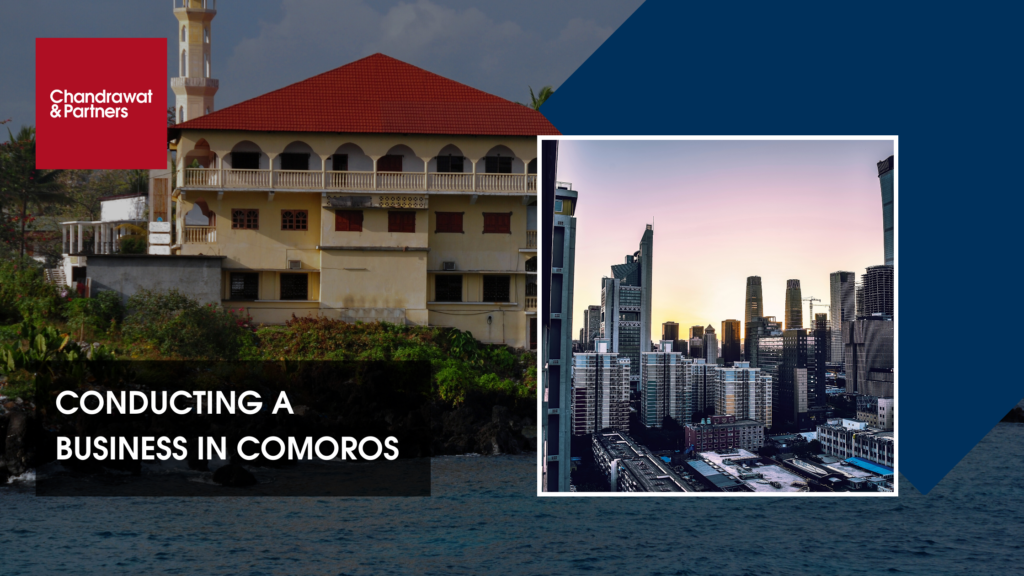
November 29, 2024
CONDUCTING A BUSINESS IN COMOROS
Union of the Comoros, an island nation located off the eastern coast of Africa, has an emerging market that is characterized by a mix of its cultural diversity, geographical advantage, and economy. Those people who are ready to enter such a specific market as Comoros, must comprehend and consider the pivotal aspects of business and culture to fully realize its opportunities and setbacks.
UNDERSTANDING THE ECONOMIC LANDSCAPE
The economy is mainly agriculture with compliant of vanilla, clove, and ylang-ylang (plant) as the primary export products. Fisheries and tourism can also be developed due to the natural beauty and biodiversity of the islands. Nevertheless, the country confronts difficulties such as insufficient transport and communication network, limited domestic market, and a high degree of import dependency.
LEGAL FRAMEWORK FOR BUSINESSES
The business environment in Comoros is framed by legislation which encourages foreign investment. Key points include:
- Company Types: Foreign investors may establish sole proprietary business, joint ventures, and limited liability company.
- Registration Process: Businesses must register with the Commercial Court and obtain a tax identification number from the General Directorate of Taxes.
- Investment Incentives: To encourage foreign investment, law provides for tax and customs incentives.
LICENSING AND REGULATORY REQUIREMENTS
Particular areas, including telecommunications, the mining industry, and fisheries, require the use of special licenses. Investors should seek assistance from the local legal counsels to ensure compliance to the regulatory requirements of various sectors.
TAXATION IN COMOROS
Businesses are subject to:
- Corporate Income Tax: Set at a rate of 50%.
- Value Added Tax (VAT): Standard rate of 10%.
- Customs Duties: Vary depending on the type of goods imported.
NAVIGATING LABOR LAWS
The law which regulates the market for Comoros is the Labor Code which seeks to protect the workers and mandates contracts for all employee. The possible factors which could be considered include:
- Working Hours: A standard workweek is 40 hours.
- Minimum Wage: Fixed by the government and adjusted periodically.
- Social Security Contributions: Employers must contribute to employee pensions and health benefits.
BANKING AND FINANCIAL SERVICES
The banking system in Comoros is relatively underdeveloped; however it is operational, there are several commercial banks and microfinance institutions. Foreign investors often experience difficulties regarding obtaining the credit and the exchange of currency.
OPPORTUNITIES AND CHALLENGES
- Opportunities:
- Tourism is relatively underexplored and has potential due the pristine beaches and the rich marine ecosystem of the islands.
- Renewable energy projects are providing more interest due to the import dependency for fuels of the country.
- There are opportunities in agribusiness as well as aquaculture for growth in businesses that are export-oriented with emphasis on the ability for these industries to meet international standards.
- Challenges:
- Instabilities in politics as well as corruption are some of the negative factors that may affect the business activities in Comoros.
- Poor infrastructure and the higher costs of transportation may have an impact on the level of profits earned by the businesses.
CULTURAL CONSIDERATIONS
There is a high degree of cultural diversity in Comoros, especially with regards to African, Arabic and French cultures. If there is mutual respect regarding locals’ values and strong personal contacts with community leaders are established businesses can be successful within these markets opening always for the best.
TIPS FOR PROSPECTIVE INVESTORS
- Conduct Market Research: Assess the possibility of your good or service being accepted in the sphere.
- Engage Local Expertise: Work with local consultants to help in the regulatory issues.
- Leverage Regional Agreements: Comoros is a member of Common Market for Eastern and Southern Africa (“COMESA”) which facilitates a wider market.
CONCLUSION
While Comoros presents both opportunities and challenges as any other developing economy, a combination of adequate preparations and a clear strategy can be used to tap on its opportunities. Entrepreneurs should aim at integrating themselves into the local society, complying with the law of the land and understanding the features of this country.
By understanding the nuances of conducting business in Comoros, investors can position themselves to contribute to the country’s development while achieving commercial success.
HOW WE CAN HELP?
- Our team offers specialized advice to help businesses successfully navigate Comoros’s complex and evolving economic environment.
- Our experts will guide you through the process of setting up a business in Comoros, ensuring compliance with all requirements, including registration, licensing, and tax obligations
- We provide valuable insights into regulatory changes and offer guidance on adapting to these changes while minimizing potential risks in Comoros.
For more information or queries, please email us at
enquiries@chandrawatpartners.com
Key Contact

Surendra Singh Chandrawat
Managing Partner

